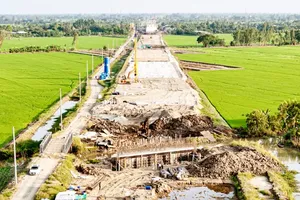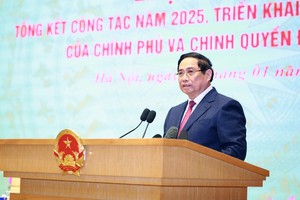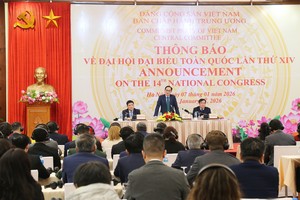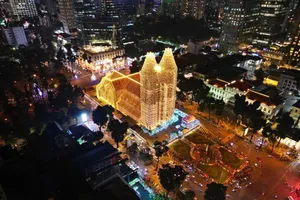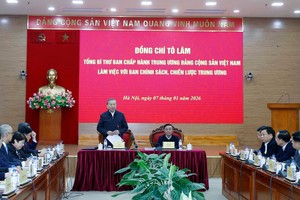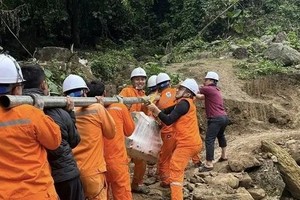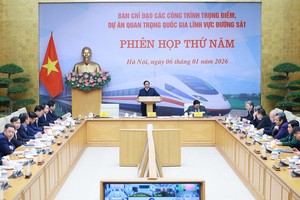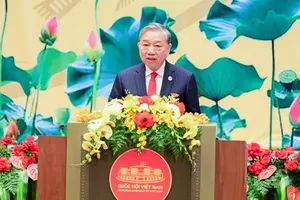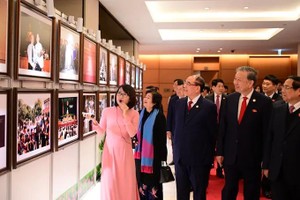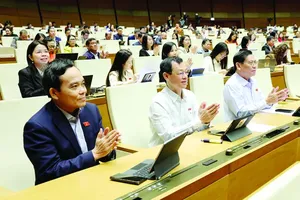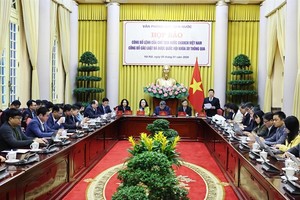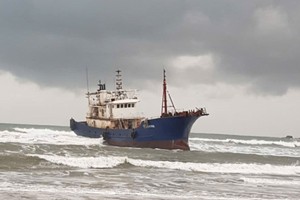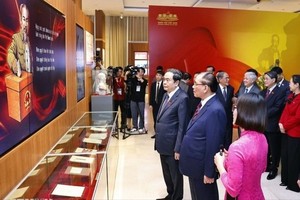On this day forty years ago, General Nguyen Chi Thanh passed away. An outstanding commander and a pillar of the Vietnamese communist military establishment, his death was considered as a great loss to the Vietnamese revolutionary forces at the time.
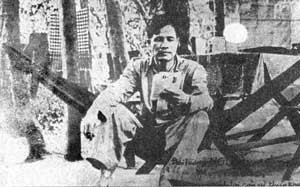
Descended from a poor family, Nguyen Chi Thanh could not finish his primary education. He did however make many great contributions, especially intellectual ones, during the directing of the war in Viet Nam. He set a good example by being eager to learn, read and think for us, the Vietnamese people.
One of his great contributions was the establishing of the Communist Party. In his writings and speeches, he usually highlighted the importance of solidarity, saying that Party members should maintain the solidarity between one another like people preserve the pupils of their eyes. He also called upon Party members to fight against the egocentrism. These profound, subtle writings and speeches always suggested self-reflection to anyone who ever read or listened to them.
He was responsible for the building of revolutionary armed forces called “Uncle Ho’s troops”. Soldiers of “Uncle Ho’s troops” relied mainly on their own strength, sacrificing themselves for the sake of the country and the people, and coordinating with one another to fight the enemy. General Nguyen Chi Thanh was a typical soldier of the troop; not conceited in victory, or discouraged by failure.
His main concern was the development of the military staff into a strong and dynamic armed force. He promoted well-experienced officers descended from worker and peasant families and used intellectuals who had proven their firm revolutionary standpoint without any hesitation.
When the United States sent more troops to Viet Nam, the General analyzed the position of the two sides, comparing each ones strengths and tactics and pointing out the advantages of the Vietnamese army by outlining appropriate strategies. He was able to stimulate faith in the army, which led to glorious victories for the Vietnamese armed forces.
Although he was a four-star General, Nguyen Chi Thanh lived a simple life. He was straightforward and had a blunt way of speaking, without showing any prejudice or discrimination to anyone. His death forty years ago has left a great impact on the Vietnamese people, it was a crucial and very sad moment in the country’s modern history.
| Nguyen Chi Thanh was born on January 1 1914 in Niem Phu Hamlet, Quang Dien Ward, Thua Thien Province. When he was 17, he joined the youth movement against the colonist government and in July 1937, he became an official member of the Indochina Communist Party ( now the Communist Party of Viet Nam). He was arrested and imprisoned by the French authorities . In 1945, he conducted revolutionary activities in the southern central part of Vietnam. In August 1945, he participated in the Tan Trao Conference in Tuyen Quang Province and was elected as a member of the Executive Board of the Central Committee of the Vietnamese Communist Party. He was appointed secretary of the Central Party Committee cum member of the People’s Revolutionary Committee and leader of the August Revolution to overthrow Emperor Bao Dai’s pro-Japan government in Hue. Between 1946 and 1948, he was a secretary of the Sub-regional Party Committee, which held battles in Thua Thien and Quang Tri Provinces, areas temporarily occupied by the French military forces. From 1948 to 1950, he was appointed secretary of the Regional Party Committee. For ten years, between 1950 and 1961, he held the position of Chairman of the General Political Department cum Deputy Secretary of the Central Committee in the army. In March 1961, owing to the imperative demand of agricultural production, he was appointed “farmer general” in the North. From 1965 to 1967, under the alias of Sau Danh, he voluntarily went to the South and became a member of the Party’s Politburo Central, leader of the Central Committee for South Viet Nam and retained this position until his death. In 1967, he went to Ha Noi to work with the Party’s Politburo, when he was about to go back to the South, he fell seriously ill and passed away on July 6. |
